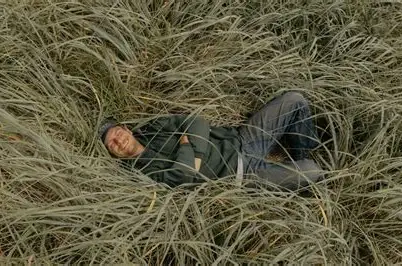This September, the FX drama series Shogun set a record with its astonishing 18 Emmy wins, raising the question to many: What makes Shogun so brilliant?
Across its ten, hour-long episodes, Shogun follows the journey of an English navigator named John Blackthorne (Cosmo Jarvis) who is marooned on the Japanese Isles. Blackthorne’s dire circumstances involve him in a brewing political conflict between Lord Yoshii Toranaga (Hiroyuki Sanada) and Lord Ishido Kazunari (Takehiro Hira) with his Japanese Council of Regents. The show took its place at the top before the Primetime Emmys even began. Each year, the Emmy Awards consist of two shows. First are the Creative Arts Emmys, which recognize various behind-the-scenes achievements, held on September 7th and 8th this year. Shogun won fourteen Creative Arts Emmys, already breaking the previous record held by the 2008 HBO series “John Adams.” Then on the night of September 15th, Shogun won four Primetime Emmys, including the coveted categories of Best Drama, Best Actor and Actress in a Drama, and Best Drama Directing.
The show masterfully depicts the elegance of Japanese culture and traditions, juxtaposing it against the relative barbarism of the English stowaway. What results is a brilliant portrayal of the clashing of Western and Eastern cultures, layered with tacit criticism of both groups. The Japanese of Shogun, in all their elegance, stick too closely to tradition, leading to needless loss of life. Any minor offense against their social expectations is treated as harshly as a federal crime. As early as the first episode, a high-ranking soldier steps out of line for a moment, and he and his family are put to death. They also put on faces and mask their true selves, leading to consistently muddled and falsified interactions between people. Western religious militancy is heavily criticized, as are European merchants and missionaries. The show frequently highlights the absurdity of European religious tension since the differences between Catholicism and Protestantism are so minimal. Groups like the Jesuits and Portuguese merchants are also criticized for taking advantage of the Japanese people. The Jesuits entrench themselves in Japan in advisory roles, but their real intention is to use their leverage to gain more land for churches. Shogun blends these flawed cultures and creates a compelling conflict as the characters try to reconcile their cultural differences. The result is a strong lesson about the simultaneous value and danger of entrenched cultural traditions in a civilization.
All this commentary is subtle and below the surface. Dialing it back and looking just on the surface, Shogun is inarguably exhilarating to watch. It is beautifully directed, showing vast Japanese vistas and cityscapes with creative cinematography. There is a reason it won the Emmy for Best Cinematography. However, the most important part of this package is the writing. Shogun’s writing team does a brilliant job at one of the most difficult parts of screenwriting: creating compelling conflicts with no foreseeable escape for the characters. Michael Cahill, a former film student at USC, the most prestigious film school in the nation, says, “In screenwriting class we learned that our primary job was to create compelling conflict. The most creative and talented writers are the ones who can put before the character seemingly insurmountable obstacles yet come up with a plausible and entertaining way to overcome them.” The show consistently writes Toranaga into these seemingly inescapable holes, just to find clever ways to write him out. Every character is used in Toranaga’s grand scheme, and each episode is layered with foreshadowing for the impending conclusion. Michael says, “When it comes to this kind of storytelling, for my money, Breaking Bad was the best at it, but Shogun certainly rivals it.” The viewer is unwaveringly held at the edge of their seat as each of these conflicts unfolds. Shogun ropes the viewer in with its beautiful cinematography and compelling concept and keeps them coming back with its masterful handling of tension and conflict.
Shogun has countless layers to unpack, but that can only be done by viewing the show in its entirety. No number of words will do its achievement justice. Any fan of dramatic television ought to add the show to their watch list, especially as Season 2 approaches in late 2025. Shogun: Season 1 aired on FX and can be streamed on Hulu.






